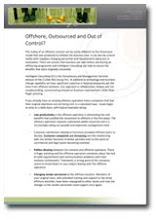How do you make sure 2015 is your best year yet? When you make your New Year’s Resolutions, think about these simple tips to give yourself the best chance possible, whatever stage of the recruitment process you are at.
Stay positive - Job Searching
1. If grammar and formatting aren’t your strong suit, get a few friends to help you with your CV. 65% of employers said that poor spelling and grammar is the most likely reason for them to bin a CV. You can’t fall at the first hurdle; it’s too small!
2. Updating your skills is a great way to make yourself more valuable on the job market. There are many free and online courses you can take, where you can practice your professional skills in a safe place. This extra training will help convince a potential employer that you are driven and committed, as well as having tangible, relevant skills. Here are some easy ways to upskill in your spare time.
3. If you have a good relationship with a previous employer, arrange to meet up for a chat about your options. If they don’t know of a vacancy that suits you, they can surely put you in touch with valuable people in the industry.
Stay cool – The Interview
4. The signals your body language displays leave an impression of your personality in the interviewer’s mind, and this impression will inevitably affect their decision. Make sure your body issaying the right thing by using this guide, which will show you some handy tricks to help you exude interview confidence.
5. Nobody’s perfect, and giving nothing but a glowing account of yourself may come across as false. Without selling yourself short, be willing to talk about your weaknesses. Show them that you are shrewd enough to identify and accept them, and then that you have the drive to improve them.
6. It’s not enough to glance over a company’s website, so do your research. Find out about their achievements in the last year, their work ethic, their history and their vision for the future. How can you be a part of their growth?
Stay humble – Responding to an offer
7. Once you have accepted an offer, send a formal letter of acceptance. You will find plenty of templates online to help you with this. Taking the time to do this will show your new company how grateful you are, and how seriously you will take your new position.
8. If you’re going to decline, do so gracefully. You never know, you might reapply! You may need their help in the future, so maintain the relationship and take the opportunity to learn from the interview experience. You want their memory of you to be a good one.












